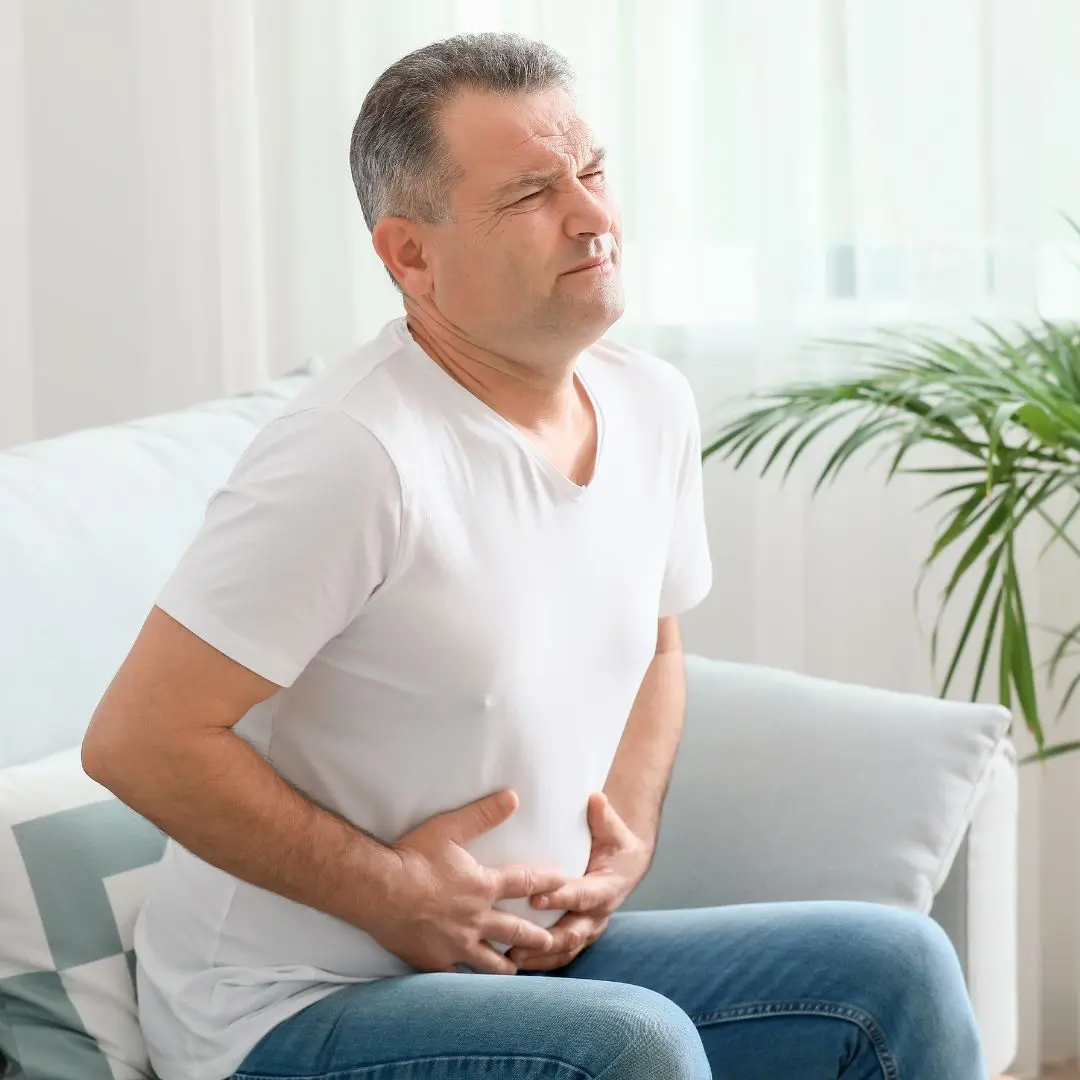Experiencing back pain can be a discomforting and puzzling issue, especially when the cause is not immediately apparent.

Blog
Can Gas Cause Back Pain? Unraveling the Truth
Experiencing back pain can be a discomforting and puzzling issue, especially when the cause is not immediately apparent. While several factors can contribute to back pain, one often overlooked cause is gas and bloating. This article explores the connection between gas and back pain, shedding light on how digestive issues can manifest as discomfort in the back and offering insights into managing and preventing this type of pain.
The human digestive system is a complex network where various issues, including gas buildup, can cause discomfort in unexpected areas, including the back. But how exactly does a problem in the digestive system translate to pain in the back? Gas in the digestive tract is a normal by-product of digestion, but excessive gas can cause pressure and bloating. This pressure can sometimes extend beyond the abdominal area, affecting the back. Specifically, gas can lead to pain in the lower back or around the shoulders due to the way nerves in the body are interconnected.
Identifying back pain caused by gas can be challenging, as the symptoms may resemble other back-related issues. However, some tell-tale signs can help distinguish it:
Relieving gas-induced back pain involves addressing the gas and bloating issue directly. Here are several effective strategies:
Making changes to your diet can significantly reduce gas production. This includes avoiding gas-producing foods such as beans, lentils, and certain vegetables like cauliflower and broccoli. Incorporating probiotics into your diet can also help balance gut bacteria and reduce gas.
Simple lifestyle modifications can make a big difference in managing gas and back pain. Increasing physical activity, improving posture, and adopting stress-reduction techniques like yoga and meditation can help alleviate symptoms.
Several over-the-counter products can effectively reduce gas and bloating, providing relief from associated back pain. These include antacids and gas relief medications containing simethicone.
While gas-induced back pain is often harmless and manageable with simple remedies, it's essential to consult with a healthcare professional if you experience severe or persistent pain. This is particularly important if the pain is accompanied by other symptoms such as weight loss, fever, or severe abdominal pain, as these could indicate a more serious underlying condition.
Understanding the link between gas and back pain is the first step toward alleviating this discomfort. By recognizing the symptoms and implementing effective management strategies, you can significantly reduce your discomfort and improve your overall quality of life. Remember, when in doubt, seeking professional medical advice is always the best course of action.
While gas-induced back pain is often harmless and manageable with simple remedies, it's essential to consult with a healthcare professional if you experience severe or persistent pain. This is particularly important if the pain is accompanied by other symptoms such as weight loss, fever, or severe abdominal pain, as these could indicate a more serious underlying condition.
The human digestive system is a complex network where various issues, including gas buildup, can cause discomfort in unexpected areas, including the back. But how exactly does a problem in the digestive system translate to pain in the back? Gas in the digestive tract is a normal by-product of digestion, but excessive gas can cause pressure and bloating. This pressure can sometimes extend beyond the abdominal area, affecting the back. Specifically, gas can lead to pain in the lower back or around the shoulders due to the way nerves in the body are interconnected.
Identifying back pain caused by gas can be challenging, as the symptoms may resemble other back-related issues. However, some tell-tale signs can help distinguish it:
Need Personalized Health Guidance?
Get expert advice tailored to your specific health needs from our qualified healthcare professionals.





